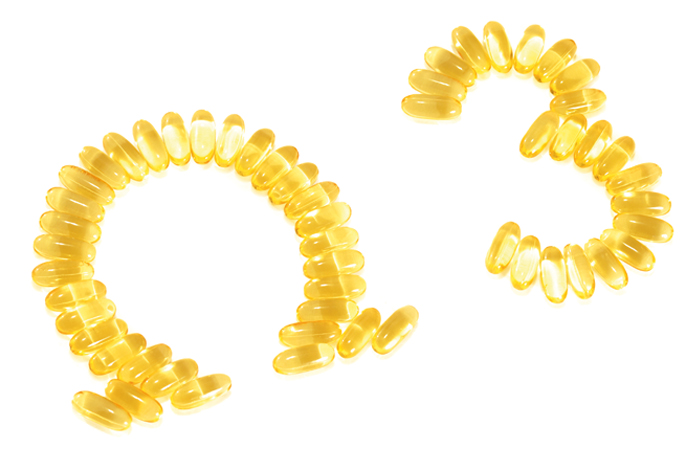Supplementing claims
In Conditions
Follow this topic
Bookmark
Record learning outcomes
With so many VMS products available, it can be difficult for pharmacy staff to know what to stock, let alone what to recommend. So which ones make a real difference?
There are few fixtures as frustrating as the supplements section. With so many different brands and variants available, choosing which products to stock can feel impossible. Then there’s the thorny issue of how to display the items that have been carefully selected. Is it best to keep brands together so the shelf looks nice and tidy? Or is the fixture easier to navigate if products are grouped by ingredient? But what about the packs that simply don’t fit neatly into a category like ‘bone health’ or ‘pregnancy’? Maybe just putting them all alphabetically would be best…

If it’s difficult to manage at the pharmacy end of things, imagine how customers are likely to be feeling. While some have a very clear idea of what they want and where it might be on the shelf, many more simply can’t get their heads around the huge range of ingredients, brands, claims, formulations, pack sizes, and other nuanced differences. It’s intimidating, bewildering and overwhelming, and that’s without paying any heed to the constant stream of headlines in the newspapers citing a particular vitamin or specific mineral as the latest ‘cure-all’.
Yet behind all this is the age-old question: are vitamin and mineral supplements (VMS) even necessary if people are eating sensibly? Dr Carrie Ruxton, dietitian and nutrition expert, says: “It’s true that a healthy diet is the cornerstone of good health, but the truth is that many people are simply not managing to get anything near what they need in terms of vitamins and minerals from their diet. Pharmacy staff should certainly encourage people to eat healthily, but they also need to be aware of the populations who are not going to meet the reference nutrient intake (RNI) for certain nutrients for which there is good evidence that supplementation can make a significant difference.”
Top of the VMS pops
Heading this class is vitamin D. In fact, this nutrient is so important that last summer the Scientific Advisory Committee on Nutrition – the expert group that makes recommendations to UK Government organisations including Public Health England – published a 304-page document suggesting all adults and children over the age of one year should consider taking this supplement.
Without enough vitamin D, the body can’t regulate calcium and phosphorous levels, which puts the health of the musculoskeletal system in jeopardy. There have been studies suggesting other health benefits – for example, a study published earlier this year by the highly regarded British Medical Journal (BMJ) indicated that vitamin D could prevent acute respiratory tract infections such as colds, tonsillitis, flu and pneumonia – but the widely held view is that more research is needed before such links can be firmly established as incontrovertible.
Paul Chamberlain, nutrition and education director at Solgar UK and Ireland, explains: “The geographical location of the UK and the fact that jobs tend to keep people indoors means that most of us are simply not getting enough sunlight to generate adequate levels of vitamin D. However, it is important to make a distinction between insufficiency and deficiency. A lot of people are not so deficient that they are at risk of serious bone problems such as rickets, but their levels are still nowhere near optimal.”
Dr Nuttan Tanna, member of the Vitamin D Working Group at the National Osteoporosis Society, adds: “Pharmacy staff have a role in explaining the issue. Many people don’t think they need a vitamin D supplement, but they don’t realise that most of what they need comes from sunshine rather than the diet.” She recommends a maintenance dose of 800 to 1,000iu daily for people with osteoporosis, and says that while it can be prescribed, the NHS-funded supplement contains gelatin so is not suitable for vegetarians. If asked for a recommendation under such circumstances, Dr Tanna recommends that pharmacy staff look at product packaging to check that the dose is adequate and the product is gelatin-free.
“Anyone who has a deficiency needs to be under their GP so they can be prescribed a high dose loading course and then have their level checked before going onto a maintenance dose,” adds Dr Tanna, who is also pharmacist consultant in women’s health and older people at London North West Healthcare NHS Trust. Support staff have a role to play in identifying individuals who are more likely to be deficient in vitamin D (e.g. older people who rarely go outside, people with dark skin, and those who cover their skin for cultural reasons) and suggest they get their blood level tested.

Healthy fats
Dr Ruxton, who also advises the Health Supplements Information Service (HSIS), states: “The other big issue in the UK is marine omega-3 fatty acids, as the proportion of people who are not getting enough hasn’t shifted over the last 10 to 20 years due to low oily fish intakes.”
There is a reason that these and their omega-6 relations are sometimes referred to as ‘essential’ fatty acids: it’s because the body needs them for a huge range of functions, from building cells to maintaining the workings of the brain.
Paul describes why there is a problem in the UK: “Both omega-3 and omega-6 are needed, ideally in a one to one ratio. The Western diet is rich in vegetable oil, which is a great source of omega-6, but is low in oily fish and seeds, which are where omega-3s are found. We generally eat a ratio of 20 to one in favour of omega-6, which is really unbalanced and puts us at risk of inflammatory conditions because of the way this is metabolised in the body.”
Omega-3 fatty acids can be topped up by taking a cod liver or fish oil product, or a vegetarian alternative, such as flaxseed oil. However, Paul says that with omega-3s, there is an element of getting what you pay for. “An example is wild Alaskan salmon versus farmed,” he says. “Wild salmon contains much more omega-3, so a supplement containing that will be purer, meaning that you get more omega-3 from less oil.”

Multitasking versus single focus
Multivitamin and mineral supplements are popular, but some people feel that such products are ‘jacks of all trades’ and masters of none. Dr Ruxton is in no doubt that their place on the shelf is justified, however. “So many people are missing the RNI on so many different vitamins and minerals that a general multivitamin and mineral supplement is the easiest way to plug the gap,” she says. “But it is worth checking the ingredients as most don’t include the marine omega-3s that are so important, so they may need a fish oil product too.”
Paul adds: “There are several groups that come into pharmacies who would really benefit from a general multivitamin. Older people, for example, may be living on their own and lacking the motivation and energy to cook so be reliant on ready meals and need that little bit extra. Parents may complain that their young children are picky eaters, and pharmacy staff can recommend products appropriate for that age group.” He puts to bed concerns about the sugar content of ‘gummy’ vitamins, which are one of the fastest growing VMS subcategories, saying: “There are degrees of scale with sugar: yes, there is some in a gummy, but there is more in a banana! And they are good for people who don’t like swallowing pills, as well as for kids.”
Adolescents are another group that pharmacy staff could tackle, suggests Dr Ruxton. “Teenagers may well come into the pharmacy to ask about skincare, and we know that many, particularly girls, don’t get enough of many nutrients, most notably iron, magnesium, potassium, calcium and vitamin D. Such queries provide an opportunity to talk holistically about how diet can affect skin, hair and nails, and a combined multivitamin and multimineral can form part of your recommendations. Parents may also want to buy supplements for their children, particularly once they lose sight of their diet because they are eating much more outside the home, such as when they start secondary school or go off to university.”
Overweight and people on weight loss regimens are two more groups that may benefit from advice on supplementation, continues Dr Ruxton: “Overweight and obese people have increased nutrient needs, but their nutrient status is typically low, particularly with regard to fat soluble vitamins, because they may be tied up in fat stores rather than being utilised by the body. And people losing weight might well be on restrictive or faddy diets that are low in nutrients so would benefit from a supplement, though they should be advised against cutting all fats out of their eating because these are vital for optimal absorption of fat soluble vitamins.”
Iron is popular as a quick pick-me-up, but it’s sensible to ask anyone buying a supplement whether they have had their haemoglobin level measured. Paul says: “People seem to self-diagnose themselves as deficient in iron when they are low in energy, but without having a blood test there is a risk that the actual cause of their symptoms goes unresolved. There’s a common belief that you can’t get too much when it comes to vitamins and minerals, so what harm will a supplement do? But more is not always better, in fact it is very rarely the case.”
A case in point is vitamin A. Taking too much of this for lengthy periods could have a negative impact on the bones in later life, making them more likely to fracture. Current NHS advice is therefore that customers must make sure that their daily vitamin A intake from food and supplements does not exceed 1.5mg.
Paul adds that not making assumptions about what people know is important. “Another good example is folic acid for the prevention of neural tube defects in babies,” he says. “Not all pregnant women and women who are trying to conceive know about this, while others assume that they get enough folic acid from their diet or fortified foods. Pharmacy staff are in a great position to advise on this. In fact, we’ve done market research which shows that in terms of where people are happy to receive information on diet and supplements, pharmacy is second only to the doctor’s surgery.”
Dr Ruxton concludes that when it comes to supplements, there is something for everyone. “Discover your customers’ requirements,” she says. “Are they trying to address specific concerns or is it more about general health and wellbeing? Ask about their budget. And don’t forget the general advice to make sure supplements are taken with a meal, and just getting into the habit of taking them every day.”
Homeopathy
The Royal Pharmaceutical Society (RPS) has published a quick reference guide to homeopathy, which pulls no punches in expressing the organisation’s strong opinion on the topic. In summary:
- The RPS does not endorse homeopathy because of the lack of evidence supporting any benefit beyond a placebo effect, nor does it support NHS prescribing of homeopathic products. Customers considering using a homeopathic product should be advised of this
- Pharmacists should ensure that patients do not stop taking prescribed conventional medication and replace it with homeopathic products, and they should be aware that anyone requesting such remedies may have an undiagnosed condition that warrants referral to another healthcare professional.
Homeopathy or herbal?
The difference between homeopathic and herbal medicines is still unclear to many people, and this is something that pharmacy staff can help to clarify:
Homeopathy is a holistic alternative therapy involving the administration of highly diluted products prepared to a certain method, and is based on the concept of ‘like treats like’. Although there are some who consider it effective – particularly when used as part of a treatment regimen that has been developed by a homeopathic practitioner – the evidence does not stand up to the scrutiny that pharmaceutical medicines are subject to. The UK drug regulator, the Medicines and Healthcare products Regulatory Agency (MHRA), does not require manufacturers to demonstrate that their products are efficacious, only that they are safe and of an acceptable quality
Herbal products are more similar to conventional medicines in that they are chosen to resolve a particular symptom or condition, and increasing the dose means that a larger effect is felt. Just like pharmaceutical medicines, side effects and interactions can be a problem, and certain groups of people should not take certain products. There is scientific evidence supporting the effectiveness of some herbal remedies, such as St John’s wort in managing some mental health problems. However, effects can be unpredictable as the composition of products varies widely.
Further information
• More about the latest vitamin D guidelines
• Read more about the BMJ report on vitamin D
• For more information on what individual vitamins and minerals do in the body, and where they can naturally be obtained from, take a look at NHS Choices
• Fnd out more about essential fatty acids
• More information on the difference between homeopathic and herbal products is available from the Royal Pharmaceutical Society.
When it comes to supplements, there is something for everyone
